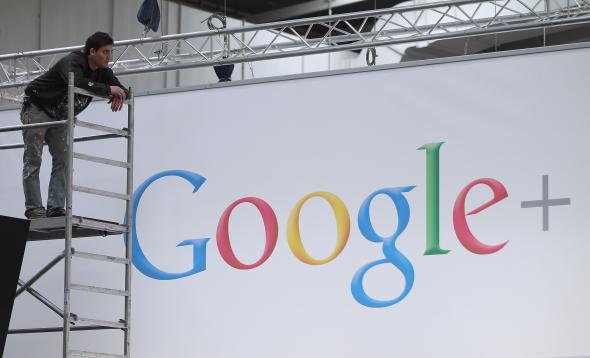On Thursday, Google spent three hours announcing a barrage of new products and features, one after the next. (You can read about them all here.) One phrase that didn’t come up much: Google Plus.
The demise of Google’s social network has been rumored since at least last spring, when its chief architect, Vic Gundotra, announced he was leaving the company. Google insisted then that Google Plus was not going away, and its official stance has not budged. But it did not escape notice that the company’s new photos app, Google Photos, comes unencumbered by any affiliation with Google Plus. Photos’ departure from the Plus umbrella follows that of Google’s popular messaging service, Hangouts.
That leaves Plus itself with … not a whole lot, other than its core social-network features. It would be wrong to say that no one uses them. As I learned the last time I disparaged Google Plus, it has in fact caught on with swaths of professionals and hobbyists who enjoy talking shop on a social network that isn’t full of friends and cats and wedding announcements. Judging from all the indignant emails I got, their affection for the service is authentic and surprisingly passionate. So let’s say instead that Google Plus’ social features are not nearly as popular as Google once hoped they’d become.
It’s safe to assume that Google knew when it unveiled Photos on Thursday that it was inviting a fresh round of questions about Google Plus’ future. To counter them, it made Google Plus chief Bradley Horowitz available for an interview with Medium’s Steven Levy, which he published to coincide with Thursday’s announcements. The full Q&A is worth reading, but it yielded one priceless highlight:

Screenshot / Medium
So no, Google Plus still isn’t dead. But it is shrinking in scope, Horowitz acknowledged. Not only has Google spun off its photo and messaging features, but it plans to refocus the social network around its strengths. For example, a new feature called Collections will allow users to post to a specific topic, like astronomy or vintage guitars. And you’ll be able to follow people’s posts about some topics, but unsubscribe from their posts about other things, like politics.
That sounds wise and somewhat useful, if not particularly promising as a hit product. Historically, interest-based online networks have struggled to attract a wide audience.
The best comparison for Google Plus at this point might Google Glass, which, you might recall, made headlines at this time last year for its own conspicuous absence from the Google I/O stage. Google continued to insist afterward that Glass was not dead—right up until it announced that, in fact, it was dead, at least as a consumer product in its present form. (It lives on in some workplaces, and Google hasn’t ruled out future iterations.)
Horowitz told Levy that dropping the name Plus “hasn’t seriously crossed my mind,” which, if you read closely, implies that it has crossed his mind. So don’t be shocked if Google quietly announces, sometime in the next year, that Google Plus is, ahem, “moving even more from concept to reality.”
Previously in Slate:
